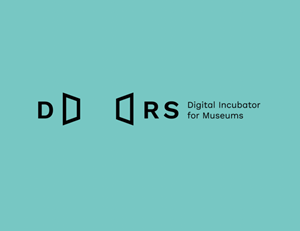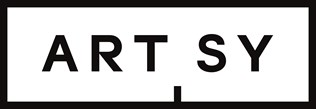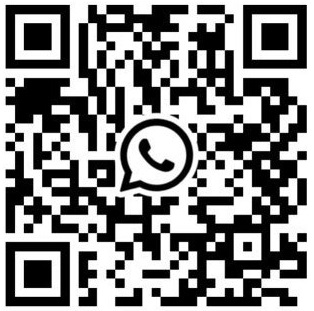
20 small and medium-sized museums have been selected for the second stage of the incubation programme ran by DOORS - Digital Incubator for Museums. The programme started this November and will run for 9 months, until July 2023.
20 small and medium-sized museums have been selected for the second stage of the incubation programme ran by DOORS - Digital Incubator for Museums. The programme started this November and will run for 9 months, until July 2023.
DOORS - Digital Incubator for Museum aims to set up a framework for sustainable digital transformations in the cultural sector. The project kicked off in October 2021 and will run until September 2023 conducting a two-stage incubation programme for museums and a comprehensive research plan with public outputs.
The initiators of DOORS - Digital Incubator for Museums are Ars Electronica, Museum Booster and Ecsite - the European Network for Science Centres & Museums. DOORS – Digital Incubator for Museums has received funding from Horizon 2020, the EU's research and innovation funding programme.
The Incubation Programme
Following the first 3-month stage in which DOORS supported 40 museums with training and learning opportunities to refine their initial pilot proposals, 20 museums have now been selected for the second stage.
The second stage of the incubation programme will focus on the implementation of 20 digital pilots in small and medium-size museums across 16 European countries. 30% of museums hail from Central and Eastern Europe, and respectively Western Europe, and 20% from Northern Europe, respectively Southern Europe.
The proposals found diverse and creative ways to respond to DOORS’ call for innovation in one of the four areas: audience analysis and engagement, revenue and distribution models, infrastructure integration or experimentation with information and communication technology (ICT).
The incubation period will combine learning from experts and peers with tailored mentoring and a hands-on approach to make the proposals a reality. It includes complementary formats - five workshops, five inspiration sessions, four individual mentoring sessions, three progress-sharing sessions and monthly open-hour sessions – and content that will build a strong basis for the successful realisation and launch of the 20 digital pilots. The workshops will zoom into the specificities of the innovation areas focusing on audience analysis, diversification, and engagement, as well as revenue and distribution models for the cultural sector. Two workshops will look at sustainability and the conditions digital pilots must fulfil to last in time.
The museums will also join a ‘buddy scheme’ and support one other organisation in rolling out their pilot.
By involving diverse experts in the programme and designing a wide range of formats, DOORS aims to cover the different challenges that museums might encounter when implementing digital pilots and prepare the museum teams to tackle them beyond the duration of the project.
The Pilot Projects
To innovate audience analysis and engagement, the museums in the incubation programme will dive into segmentation models (The Neanderthal Museum), will design more complex and personalised user journeys (IMPAKT [Centre for Media Culture]), services (University Library of the University of Žilina) and cultural offers (Turkcell Dialogue Museum), or content for non/absent audiences (The Royal Museum of Mariemont, The National Museum of Maps and Old Books). Others seek to engage audiences with innovative visitor experiences, by building bridges between the online and onsite (The Association of Uräjärvi Mansion´s Friends, The Regional Museum Goriški Muzej), bringing collections outside out of the traditional museum space (Museo Civico Vignola Augusta Redorici Roffi), or augmenting the exploration of onsite collections with digital content (Arboretum Volcji Potok, Terra Sancta Museum).
Some museums will set the steppingstone for new business models to help them become more resilient and financially sustainable with unique experiences that appeal to new audiences (The Computer History Museum), blueprints for digital solutions that can be adopted by other museums (Kaiser Franz Josef Museum Baden, Muzeon – Storytelling Jewish History Museum), an E-shop to support professionals and the museum’s community (The Museum of Urban Wooden Architecture), or a wider range of services (Museum of Literature Ireland).
The Natural History Museum and Botanical Garden of the University of Tartu addresses the importance of in-house infrastructure for digitalisation and will roll out an innovative strategy for integrating infrastructure designed to ease the digitisation of collections and create opportunities for expanding their use by reaching wider audiences. Finally, two museums chose to experiment with information and communication technologies, working with others to set up digital platforms that re-design the curatorial process (Alonissos Museum of K.& A. Mavriki) or reimagine the museum labels for the sector (St Ives Museum).
All proposals creatively reimagine the role of cultural institutions in a landscape shaped increasingly by the entertainment industry. The museums will collaborate with actors from the tech and creative sector, receiving support and a distinct perspective on how to conceptualise and deliver cultural offers for our times.
A full list of the pilot projects and their descriptions can be found at: https://ars.electronica.art/doors/en/stage2/


ArtDependence Magazine is an international magazine covering all spheres of contemporary art, as well as modern and classical art.
ArtDependence features the latest art news, highlighting interviews with today’s most influential artists, galleries, curators, collectors, fair directors and individuals at the axis of the arts.
The magazine also covers series of articles and reviews on critical art events, new publications and other foremost happenings in the art world.
If you would like to submit events or editorial content to ArtDependence Magazine, please feel free to reach the magazine via the contact page.